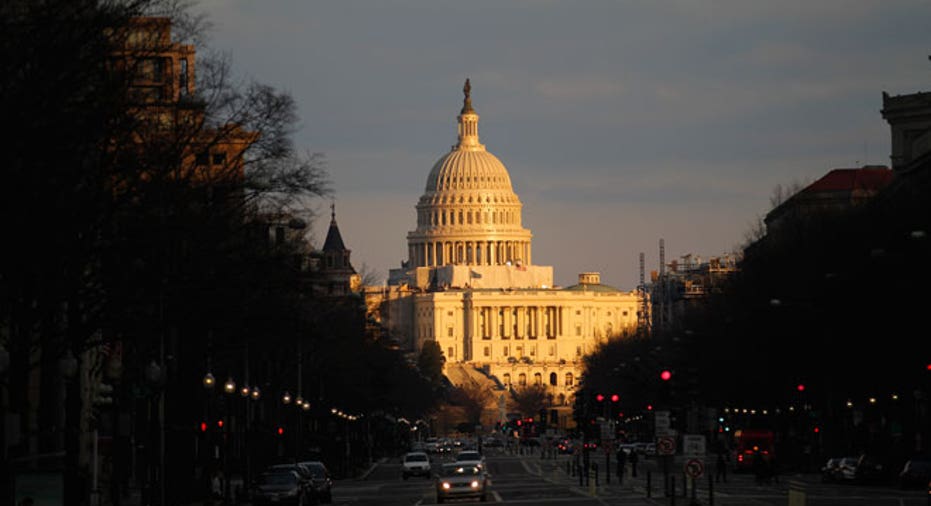White House Bracing for Budget Cuts

The White House said on Tuesday it was starting to get ready for potentially painful year-end spending cuts, and was committed to shielding U.S.military pay from any government budget crunch.
Jeffrey Zients, acting director of President Barack Obama's Office of Management and Budget, said discussions would start soon on how to weather the looming automatic spending cuts, known as "sequestration," that would take place starting Jan. 2 if Congress cannot achieve a deficit reduction deal.
The announcement came shortly after progress was made in Congress on an important fiscal issue that is separate from the upcoming automatic spending cuts. Republicans and Democrats reached a tentative deal to maintain funding for government programs through March 2013. Without such a deal, money would run out Oct. 1, when the new fiscal year begins.
If passed by the full Senate and House of Representatives, the deal would end any threat of government shutdowns before the November presidential and congressional elections. But how to deal with the scheduled round of automatic spending cuts was proving to be more problematic. "If allowed to occur, the sequestration would be highly destructive to national security and domestic priorities, as well as to core government functions," Zients said in a memo to the heads of government departments and agencies.
Unless Congress and Obama can reach a deal by Jan. 2 on a new formula for deficit reduction, $109 billion in spending cuts will fall into place as a first down payment on more than $1 trillion in spending cuts over a decade. Those are to be divided equally between defense and domestic programs.
The automatic spending cuts are the result of a deficit-reduction deal struck last August by Obama and Congress that also raised Treasury Department borrowing authority to avoid an historic government credit default. An attempt in Congress to replace the automatic spending cuts with a series of more targeted, well-thought-out reductions and revenue increases collapsed in November. But lawmakers are hopeful they can revisit the matter. "The president remains confident that Congress will act, but because it has not yet made progress towards enacting sufficient deficit reduction, the Office of Management and Budget will work with agencies, as necessary, on issues raised by a sequestration of this magnitude," Zients said.
A leading conservative Republican lawmaker, Senator Lindsey Graham, on Tuesday said he was willing to consider revenue increases as part of a broader effort to avoid the scheduled spending cuts.
Graham said he would "close loopholes and eliminate deductions and generate money from the tax code to offset the effects of sequestration," along with some new savings in military and other programs. The administration's decision to exempt military personnel accounts from the automatic cuts was widely expected, and had been recommended by Defense Secretary Leon Panetta and other top officials, despite its potential squeeze on other parts of the Pentagon budget.
"This step was taken because the administration believes it is in the national interest to safeguard the resources necessary to safeguard the men and women serving to defend our nation and to maintain the force levels required for national security," an administration official said. Congress has been seeking ways to avoid the automatic spending cuts, but so far Republicans and Obama's fellow Democrats have failed to come up with a formula. Those decisions might not come until after the Nov. 6 elections, when lawmakers are expected to convene an end-of-year "lame duck" work session.
In addition to the looming spending cuts, Congress will also have to grapple with whether to extend income tax cuts, first enacted under former President George W. Bush, which are set to expire on Dec. 31. The shape of these "fiscal cliff" negotiations is expected to be influenced heavily by which political party comes out on top in the November vote. Obama and his Republican presidential rival, Mitt Romney, have been neck-and-neck in the polls.



















